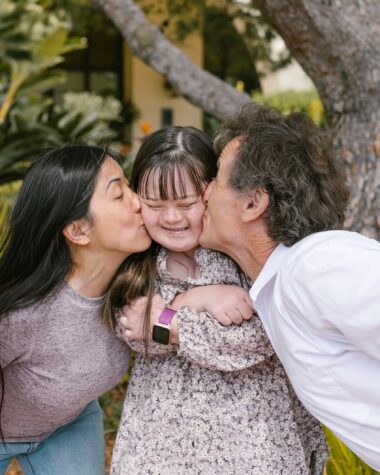Introduction to the Impact of Divorce on Children
Divorce is a challenging and emotional process for all parties involved, including children. It can bring about significant changes in their lives, including changes in living arrangements, relationships with parents, and family dynamics. As adults, it is our responsibility to understand and communicate with our children about divorce in a way that supports their emotional well-being.
Understanding and Communicating With Children About Divorce
In this section, we will discuss essential strategies to help kids navigate the challenges of divorce by understanding its impact on them and effectively communicating with them.
- Age-Appropriate Discussions: Children of different ages may have varying levels of understanding and ability to cope with divorce. It is crucial to have age-appropriate discussions with your child about the situation. For younger children (ages 5-8), keep the conversations simple and focus on the reassurance that they are loved and cared for by both parents despite the separation. Older children (ages 9-12) may have more questions and concerns about how their lives will change after divorce. Be honest with them, but avoid sharing details that could burden or overwhelm them. Teenagers (ages 13+) may benefit from being included in discussions related to logistics, such as visitation schedules or decision-making processes.
- Encouraging Open Communication: It is natural for children to feel confused, scared, angry, or sad when their parents decide to end their marriage. It is essential to create an open environment where your child feels comfortable expressing these emotions without fear of judgment or punishment. Encourage your child to talk openly by actively listening without interrupting or dismissing their feelings.
- Validating Their Feelings: Validation means acknowledging someone’s thoughts and feelings as valid and understandable without necessarily agreeing with them. Validating your child’s emotions during this difficult time can help ease their anxieties and strengthen your relationship with them. For example, if they express anger towards you or the other parent, instead of getting defensive, try saying something like, “I understand that you are angry and it’s okay to feel that way. I am here for you.” This approach shows your child that their feelings are valid and accepted.
Divorce can have a significant impact on children, and it is crucial to understand how to support them through this challenging time. By having age-appropriate discussions, encouraging open communication, and validating their feelings, we can help our children healthily navigate the challenges of divorce.
Supporting Children Emotionally During and After the Divorce Process
Going through a divorce can be incredibly challenging for children, as it often brings about feelings of confusion, sadness, and fear. As parents, it is crucial to provide emotional support for your children during and after the divorce process. Here are some essential strategies that can help you support your children’s emotional well-being.
- Establishing Routines and Consistency: Children thrive on routine and consistency. Going through a divorce can disrupt their sense of stability, so it is crucial to establish new routines as soon as possible. This includes having consistent mealtimes, bedtimes, and activities. It will provide your children with a sense of predictability in their daily lives.
- Providing a Safe Space for Expression: It is essential to create a safe space where your children feel comfortable expressing their emotions openly without fear of judgment or punishment. Encourage them to talk about how they are feeling and validate their emotions. Let them know that it is okay to feel sad or angry.
- Seeking Professional Help if Needed: Every child handles divorce differently, and some may struggle more than others. If you notice significant changes in your child’s behavior or they seem overwhelmed by their emotions, seeking professional help from a therapist or counselor can be beneficial.
Co-parenting Effectively for the Well-being of the Children
Divorce does not end co-parenting; it only changes its dynamics. Co-parenting effectively requires both parents to put aside any personal differences for the sake of their children’s well-being. Here are some strategies that can help you co-parent successfully.
- Communicating Respectfully With Your Ex-partner: Effective communication with your ex-partner is crucial when co-parenting after a divorce. Keep all communication respectful and focused on the needs of your children instead of past conflicts or issues between yourselves.
- Avoiding Conflict in Front of the Children: It is natural for divorced parents to have disagreements, but it is crucial to keep these conflicts away from the children. Witnessing frequent arguments or tension between their parents can be very distressing for children and can negatively impact their emotional well-being.
- Consistency in Rules and Discipline Between Households: Children thrive on structure and consistency, so it is essential to maintain consistency in rules and discipline between households. This will help your children feel more secure and less confused about what is expected of them.
Divorce brings significant changes to a family’s dynamics, and it is crucial to prioritize the emotional well-being of your children during this challenging time. By establishing routines, providing a safe space for expression, seeking professional help if needed, communicating respectfully with your ex-partner, avoiding conflict in front of the children, and maintaining consistency in rules and discipline between households, you can support your children’s emotional health during the divorce process. Remember that co-parenting effectively requires both parents to put aside any personal differences and work together for the well-being of their children.
Also Read: Navigating Co-Parenting: A Guide to Sharing Custody of Your Toddler with Your Ex
Conclusion
Divorce can be a difficult and overwhelming experience for children. However, by implementing these essential strategies, you can help your kids navigate the challenges of divorce with more ease and understanding. Remember to communicate openly, prioritize their emotional well-being, seek support when needed, and maintain consistency in their routine. With patience and love, your children can come out of this tough situation stronger and more resilient than ever before.







